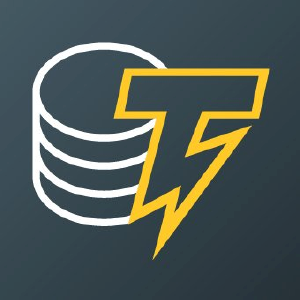The facet of TradFi most ripe for disruption is equities
4 min read
Opinion by: Mike Cahill, co-founder and CEO of Douro Labs Despite the institutional frenzy around crypto and the ubiquitous narrative of democratized access to investing, most of the world population is still barred from traditional wealth-building. Take the US, for example — here, the top 10% of earners own more than 90% of all stocks. On a global scale, it gets even worse: Billions of individuals don’t have the financial literacy, digital tools or minimum funds required to even access the most basic investment opportunities. Traditional institutions must do more than just invest in crypto to ameliorate this disparity — they must start employing digital assets for new use cases altogether. The facet of TradFi that is most ripe for disruption is equities. Investing in shares of private companies is an opportunity historically reserved only for the wealthy and hyper-connected. It is often siloed within the most economically advanced nations. Enhancing access to equities worldwide can be achieved, however, by injecting decentralized technology into three fundamental components of our financial system: price, execution and settlement. The bedrock of traditional finance Equities typically refer to shares of private companies, and they’re one of the most potent tools for wealth creation. On top of regulation, the main factor restricting access to equities is the infrastructure that underpins our financial system: stale and inaccurate pricing data, exclusive execution venues and painfully slow settlement periods. Price Traditional equity markets are private. Here, pricing data is sequestered behind non-disclosure agreements, paywalls and groups of individuals who want to keep this information to themselves. Access to accurate, real-time pricing is what enables investors to make informed decisions, and it’s the crucial ingredient required to participate at all. If pricing data remains in the hands of those who can afford access or run in the right social circles, the system will continue to support only a small group of wealthy, privileged people. Recent: Ether sentiment hits yearly low but that could be a good thing: Santiment Execution While many apps and platforms might make it seem like buying equities is as easy as pressing a button, the reality is that making these types of investments almost always requires strict vetting processes and minimum investment thresholds that everyday investors just don’t have access to. While it seems like public markets should be exempt from these barriers, brokerage fees and geographic limitations can still hamper participation. As a result, the current systems simply uphold the “rich get richer, poor get poorer” narrative. Settlement Most traders have experienced the frustratingly slow, highly bureaucratic and hazardous equity settlement systems in place today. It can take several days for a single trade to finalize. If it’s a cross-border trade, settlement times can lag even more. This results in capital being locked up, further dissuading smaller investors from participating — a snowball effect that keeps access to equities solely in the hands of the most elite traders. While these barriers are undoubtedly systemic, they’re also very solvable. As history has shown, time and time again, innovation always forces a shift. That’s where decentralized finance (DeFi) comes in. Reimagining infrastructure through DeFi Decentralized technologies have the potential to reimagine TradFi’s infrastructure to create a system that is faster, more accessible and more efficient and unlock new forms of equities participation. These include synthetic equity markets, tokenized private equity and even equity-based prediction markets. Regarding price, execution and settlement, DeFi and TradFi have the opportunity to work together , combining forces to offer a new foundation to the financial system that promotes equity, access and transparency. Decentralized price feeds offer real-time, accurate price data on equities that don’t come at the exorbitant price of a Bloomberg Terminal. They empower traders of any background or location to access fresh market data to trade equities with the same knowledge as the most elite traders. At the same time, decentralized execution platforms enable marketplaces for fractional, tokenized equity exposure. Now, if traders have an internet connection, they can make trades supported by smart contracts that automate trade matching, liquidity provision and order fulfillment. This empowers traders to purchase small, fractional stakes in these assets, empowering those even in the most rural and secluded areas of the world to own a piece of the same high-growth company as an accredited investor in the US. Finally, settlement in DeFi is almost instantaneous. That’s because blockchain removes the need for intermediaries, making it possible for equities to be traded in milliseconds. This dramatically reduces counterparty risk while unlocking capital for continuous use, making trading even more attractive to smaller players. Building the next generation of finance Creating a financial system that is genuinely democratized means more than encouraging institutions to buy and trade digital assets. It means rethinking the way our financial infrastructure exists and operates today. While equities are one of the most powerful wealth-building tools available, most of the global population still can’t access them due to geography, legacy and privilege. Through revolutionizing price, execution and settlement via decentralized innovations, equities can be entirely disrupted — closing the wealth gap that keeps billions of people at the mercy of a select few. Opinion by: Mike Cahill, co-founder and CEO of Douro Labs. This article is for general information purposes and is not intended to be and should not be taken as legal or investment advice. The views, thoughts, and opinions expressed here are the author’s alone and do not necessarily reflect or represent the views and opinions of Cointelegraph.

Source: CoinTelegraph






